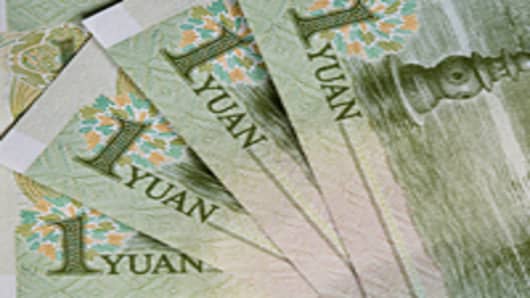But just because the US isn't likely to face a hyperinflationary future doesn't mean that hyperinflation is not a problem in the rest of the world. In countries where politicians or other special interest groups control monetary policy, hyperinflation remains a very real possibility.
One place I wouldn't be surprised to see inflation get out of control: China.
The Chinese government has been making a show of combatting inflation but many of the measures undertaken are actually designed to cover-up inflation. Price controls? Don't solve the inflation problem, just push it underground. Raising reserve requirements? Might work if the banks did not have other sources of outside funding; they do, so it won't work. Attempting to talk prices down? Usually only scares people into hoarding, contributing to rising prices. Raising interest rates?
Works for the U.S. but might backfire in China.
What few outsiders seem to understand is that the Chinese government doesn't "fight inflation" like the US Federal Reserve does. When the Fed wants to fight inflation, it sells US government securities. This reduces the amount of cash in the system and has the indirect effect of raising interest rates. This is a roundabout way of raising interest rates, which is why the Fed talks about targeting rates rather than setting them.
China actually just sets the rates of interest banks can charge. This does not necessarily reduce the quantity of money. It is, really, a form of price control that distorts the economy even further because it does nothing to reduce the excess supply of money.
The source of inflation in China is not low interest rates. It is not greedy speculation. It is government policy that keeps on growing the quantity of money regardless of what Beijing says about fighting inflation.
The government policy that is inflating the money supply is the Chinese currency peg. China is a magnet for foreign capital, bringing in far more in exports and investment than it pays out. Normally, this would result in the value of foreign currencies depreciating relative to the local currency. But in order to maintain its fixed exchange rate, China's central banks buys all those extra dollars and euros, replacing them with renminbi. This means that the government is constantly expanding the money supply. And as long as that keeps happening, China will keep on experiencing elevated inflation.
There doesn't seem to be an end to this in sight. Too much of the Chinese economy is dependent on the export levels that would collapse if the currency peg were stripped away. The collapse of the housing bubble in China would likely lead to widespread political unrest, especially once the Chinese people realized the extent that well-connected officials had grown wealthy off the bubble. What's more, China's huge reserves of foreign currency would start to fall—stripping China of one of its global sources of influence and prestige.
In short, the political dynamics of China are very different from those in the US. The politicians, rather than bankers, control the money supply. Their interests are aligned with growing inflation.
Now wonder demand for gold in China has been explosive this year.
__________________________________________
Questions? Comments? Email us atNetNet@cnbc.com
Follow John on Twitter @ twitter.com/Carney
Follow NetNet on Twitter @ twitter.com/CNBCnetnet
Facebook us @ www.facebook.com/NetNetCNBC



